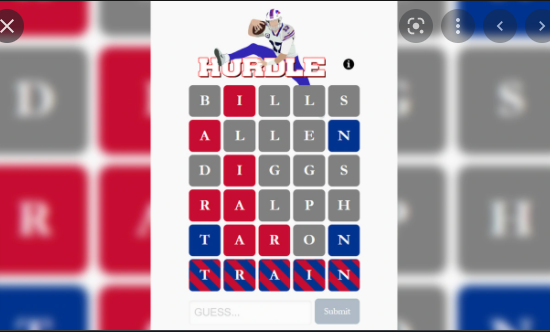Over time, card counting’s math has evolved. For a good card counter to be profitable, they would need to go undetected for hundreds of hours, but I only need to catch them once. The chances are good that if you make a mistake in an Oklahoman Indian casino once, you won’t even be able to get to a table without being escorted out the next time you visit Las Vegas.
As a result, the stakes are raised because it will be much harder for you to avoid detection in the future once you’ve been flagged for the first time. Your playing days might even come to an end as a result.
What Casinos Do to Stop Counters
A player’s BOLO (Be On The Look Out) or information sheet will not only include pictures, frequently from different perspectives, but also a list of their known aliases and associates.
It will have a thorough description and additional identifying characteristics, like tattoos.
Don’t be surprised if some of that information is also on file because many casinos like Mr Bit Casino use car tag readers to keep track of who enters and exits the garage or parking area or simply to let them know when certain VIP guests arrive.
Typically, these are distributed locally or to casinos with information-sharing agreements between their surveillance departments, but the information is still widely accessible for any casino that subscribes to the databases to search by name, description, or other criteria.
Facial recognition software is frequently used in conjunction with all of this, making it unlikely for many well-known counters to get as far as a table before management asks them to leave.
The majority of casinos simply won’t take the chance on allowing someone who has been reported by another casino as a card counter to play at their tables, though some will give a player some leeway so they can make their own judgment.
It’s not unusual for me to walk three or four counters a week off the property in the medium- to large-sized casinos where I’ve worked.
A BOLO will have allowed me to identify literally four out of every five people before I leave the casino floor. We now have them after they made a mistake previously.
The game of card counting is a mathematical one, though, in actuality. Before it eliminates all of your profit, you can only change your play so much.
Old-fashioned bait and switch
The “big player” attack had a straightforward theory. Competent counters could watch games while continuing to flat bet but calling in major players when the count reached a certain threshold.
As they only played when the count was high, these players would move between tables.
Because the big player was only placing large bets per hand, the bet spread was unaffected, and the casinos found it difficult to identify the real counters on their games because they remained undetectable.
In order to give some credence to their frequently strange and erratic behavior and reduce suspicion even further, the big player frequently adopted a theatrical role.
The casinos had to inform millions of visitors that they couldn’t place significant bets until after the shuffle in order to stop this attack in its tracks.
Despite some claims to the contrary, it did immediately close that particular gap in the casino’s defensive strategies.
Many of these rules have since been relaxed as casinos have become more adept at knowing what to look for and have found it easier than ever to mine player databases to uncover connections between players who appear to be unrelated.
Remember These Things If You’re Going to Count Cards
There are a few significant factors to take into account if card counting is still on your mind. The first thing to keep in mind is that the Hyland Group or the MIT teams’ era is over.
Form W-9 and tax paperwork completion are now required for large bets. Using databases, it is possible to confirm identity and occasionally even profession.
Counters and count teams can be found using the same kinds of databases that the government and casinos use to combat money laundering.
Asymmetrical team play, where individual bets and even index plays may not match the count, but the overall money at risk and play does, can be very successful. The key is to avoid using the same players excessively at any one venue.
Finding players with extensive casino histories—especially losing ones—and recruiting them is another way that some teams have made adjustments. Since the casinos will have done their homework, they won’t be as aware of the high activity.
Others have sought out well-off businessmen or technology executives who might resemble the precise player demographic that casinos are targeting and who are able to withstand a cursory background check.
Counters will also want to pay close attention to the many other advantage plays available in casinos, such as excessive free play on electronic table games, poorly designed promotions, tournaments, and giveaways, among many others.
Many players have gone above and beyond in an effort to gain the upper hand, from holding rummage sales of items purchased with comp points to using porn stars to cause dealer errors.
Don Johnson belongs to this group. In addition to having excellent counting skills, he also scouted the field of battle before starting to play, which helped him win millions against Atlantic City and Vegas.
He defeated casinos that ought to have known better by being more organized and having a mathematically sound plan, a plan that just so happened to include porn stars, by using counting, confusion, and poorly designed casino cashback.
New Day
With the speed of information and the breadth of data available now, one slip-up or mistake that draws attention to your play or the play of your team can be disastrous.
Understanding your surroundings is crucial. Watch the pit workers (especially when they go to the phone), and keep an eye out for sideways glances or whispered conversations in the vicinity. Put a flat bet down and don’t panic.
If I approach and move the cut card upward or order the dealer to shuffle while you flee, surveillance will be fast-forwarding your performance.
The practice of counting cards for amusement and profit is still ongoing. Nevertheless, technology will most likely hasten its demise within the next five to ten years.
That being said, the hustlers and the dreamers will probably always be drawn to take their shot at taking down the house because there’s something about pitting your wits and imagination against a determined foe that appeals to them.




















